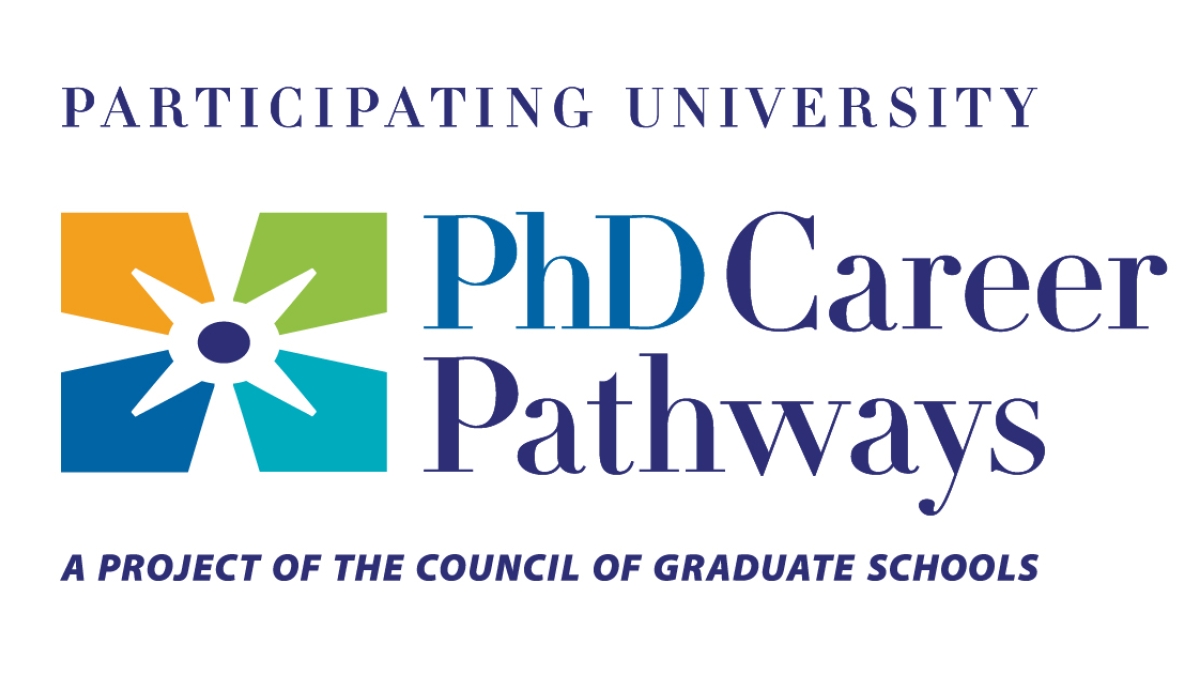ASU Graduate College awarded grant to study doctoral career pathways

New research aims to shed light on what types of careers students pursue after they earn a doctorate, a topic that remains understudied.
Arizona State University’s Graduate College has been selected to participate in a $2 million multi-institutional grant, aimed at studying doctoral career pathways for STEM (science, technology, engineering and math) and humanities. The ASU Graduate College’s "Understanding PhD Career Pathways" research will receive $80,000 to understand students’ career aspirations, levels of academic training for versatile careers and improve professional development for doctoral students.
“We know that diverse career preparation is a problem across disciplines and job markets, but there’s a gap in the literature about what careers students pursue after they earn a PhD. Some PhD-to-career paths are well-worn, for other fields the road is not as clear,” explained Jennifer Cason, a co-principal investigator on the grant. “With this study, we aim to understand connections between career aspirations academic training, and PhD career outcomes.”
PhD Career Pathways is a best practice project led by the Council of Graduate Schools, a national organization that supports graduate education and research. The research is supported by grants from the National Science Foundation and the Andrew W. Mellon Foundation. The council has selected 29 universities to participate in the three-year project, and 18 affiliate partners. These universities collectively awarded over 8,000 doctoral degrees in 2013–14 alone.
"ASU is the perfect setting for this research," said Graduate College Dean Alfredo J. Artiles, who serves as principal investigator. "We are one of the largest institutions of higher learning in the country, training around 4,100 doctoral students in Fall 2016. ASU is also the most innovative university in the nation, aggressively enabling student success, conducting use-inspired research and being engaged globally."
The Graduate College will survey current graduate students at years one, two and five, and track alumni who received doctorates three, eight and 15 years ago. Results from collected data will help gain insight into the understudied professional landscape for doctoral students in academic and nonacademic careers. The survey begins in the fall of 2017, and the Council of Graduate Schools intends to publish the first set of cumulative results the following fall.
Additionally, the Graduate College has built benefits into the project to support doctoral education right away. Twenty-five participants will be awarded funding for career development activities. As a means to strengthen links with industry, a doctoral career advisory board will be created. An additional outcome of this project will be the production of educational videos on career preparation and transition between multiple employment sectors.
Researchers believe that gathering career pathways information at the program level will ensure doctoral students are prepared for the multiple careers they’re likely to encounter.
“Historically, students pursue PhDs to become tenured faculty at a university or develop scholarship in a specific discipline, but tenure track positions have not increased at the same rate as graduates and research is becoming more interdisciplinary in nature,” Cason said. “PhD graduates now land jobs in industry, non-profits, government, public service, and become entrepreneurs, yet the route to these varied types of employment has gone largely unstudied.”
The lack of information can prevent graduate students from understanding their potential career opportunities, and hinders educational institutions from tailoring their curricula to the changing marketplace.
The Graduate College, alongside academic units, shares the responsibility to ensure graduate students have the skills critical for exploring multiple career pathways by infusing communication, critical thinking, collaboration and creativity into structured professional development programs. The Understanding PhD Career Pathways research will amplify programs like these.
An informational session aimed at recruiting participants for the "Understanding PhD Career Pathway" study will take place on Tempe campus from 3 to 4 p.m. Sept. 8, at Discovery Hall (DISCVRY), room 250, 250 E. Lemon St., Tempe, AZ 85281.
More Science and technology
Largest genetic chimpanzee study unveils how they’ve adapted to multiple habitats and disease
Chimpanzees are humans' closest living relatives, sharing about 98% of our DNA. Because of this, scientists can learn more about…

Beyond the 'Dragon Arc': Unveiling a treasure trove of hidden stars
NASA's James Webb Space Telescope (JWST) has set a new milestone: capturing images of over 40 individual stars in a galaxy so…

ASU selected as home and partner for CHIPS and Science Act-funded national facility for semiconductor advanced packaging
Following a week where a spirited effort by the Sun Devil football team captured the nation’s attention in the Peach Bowl, it is…